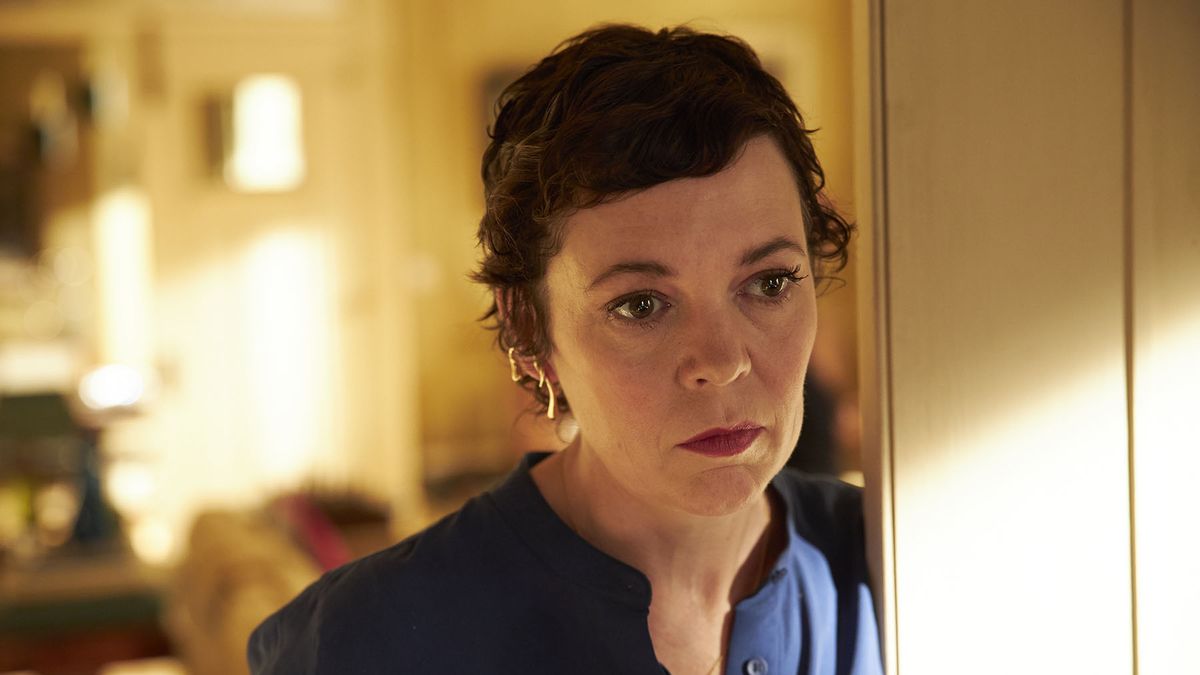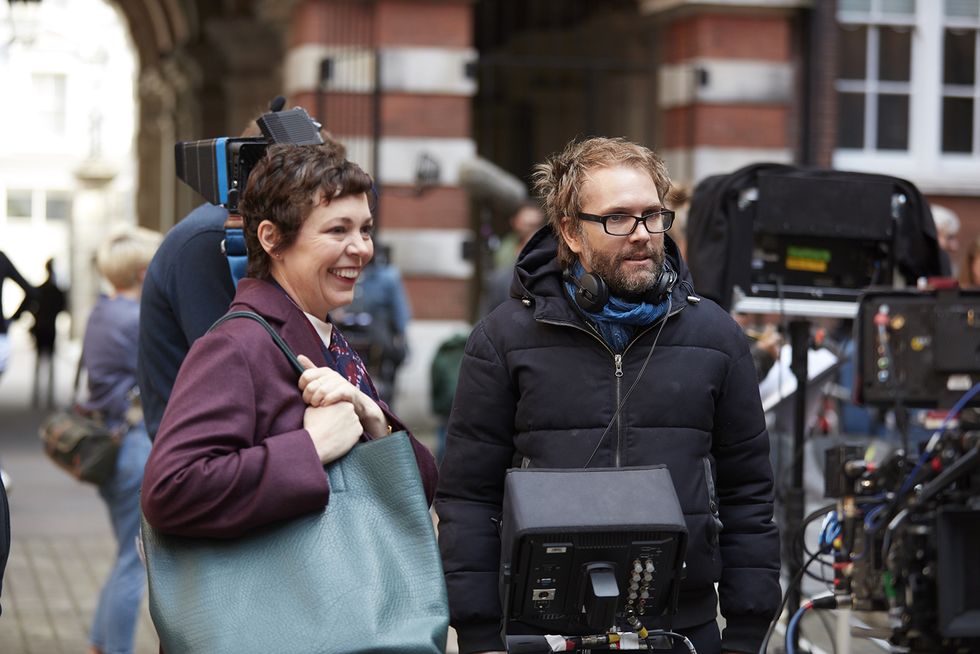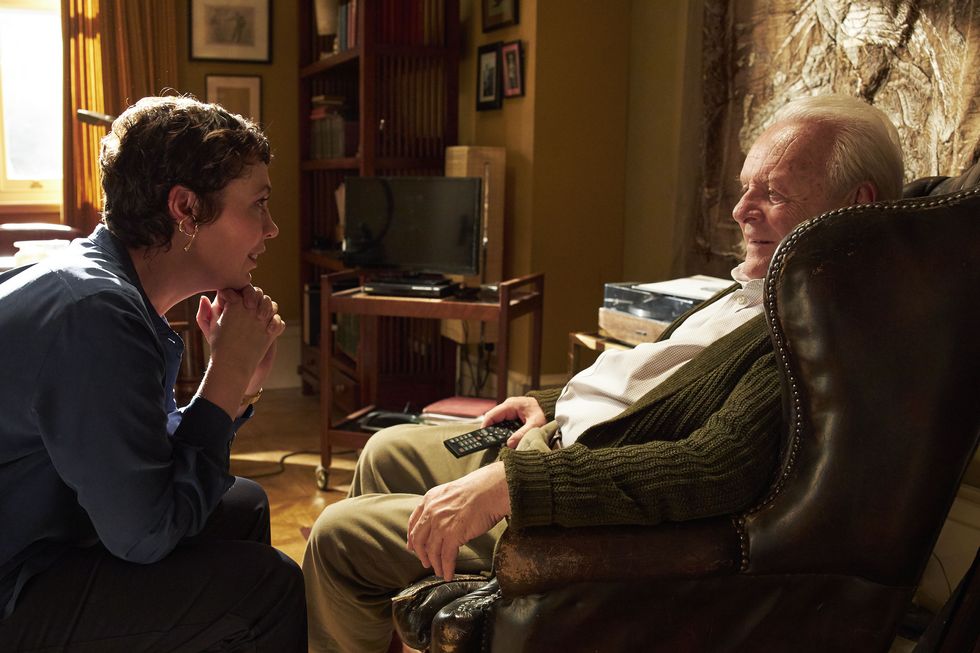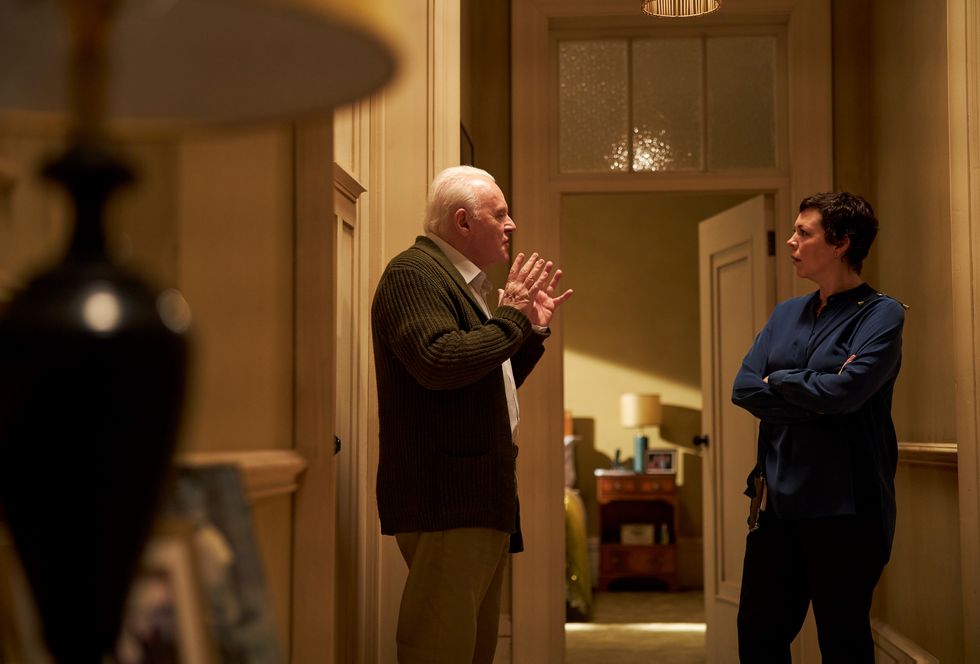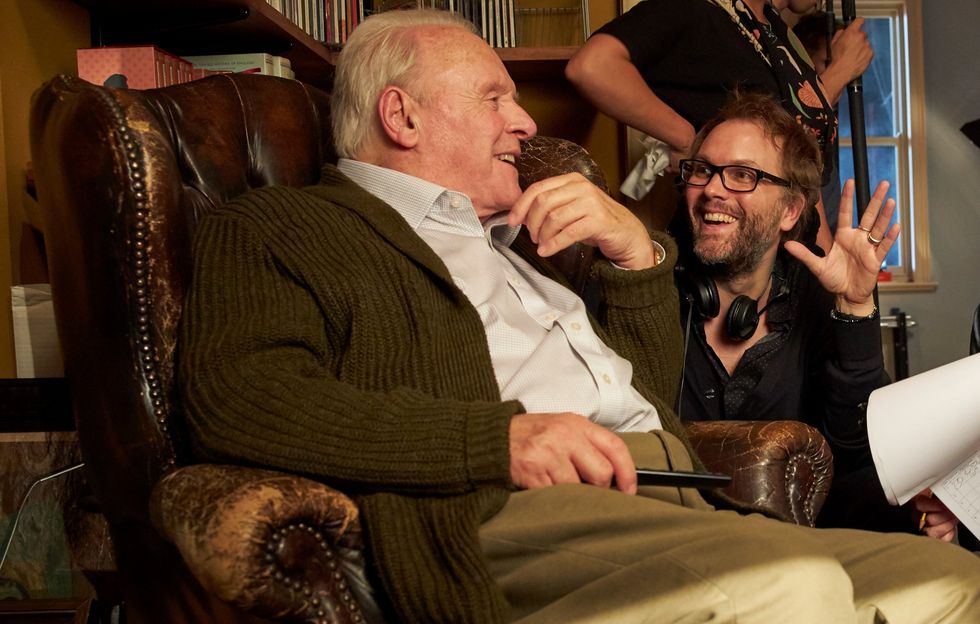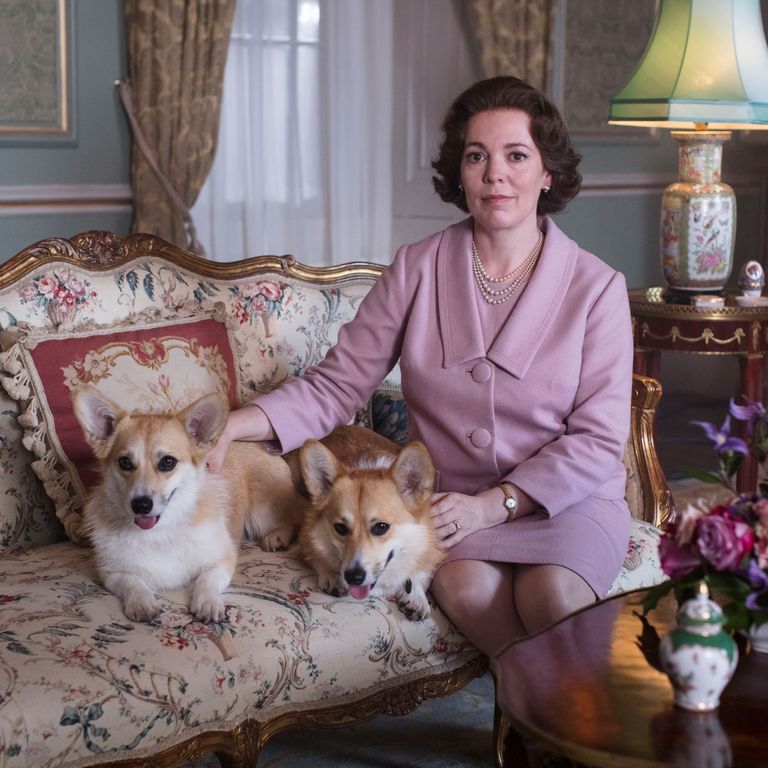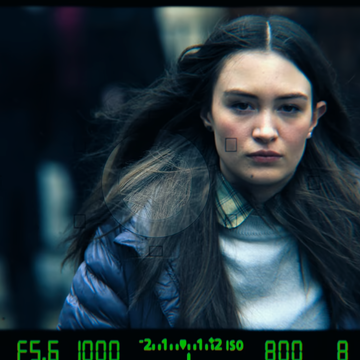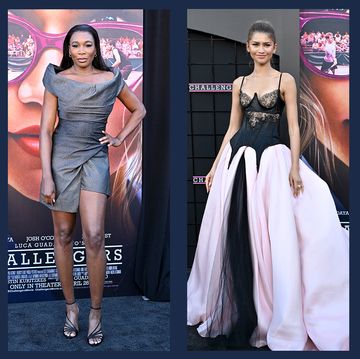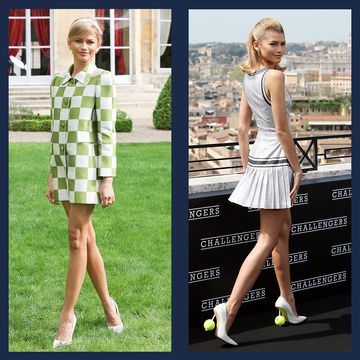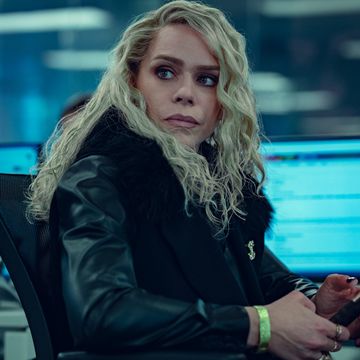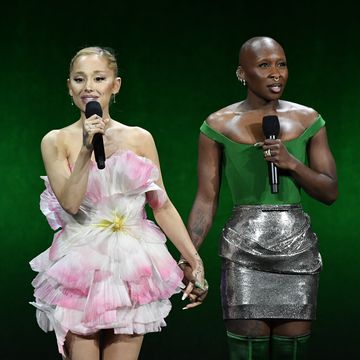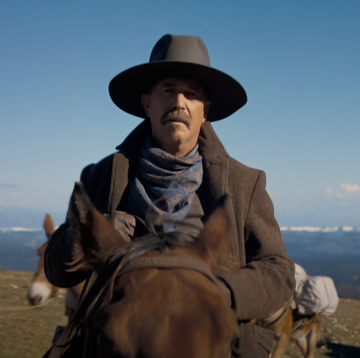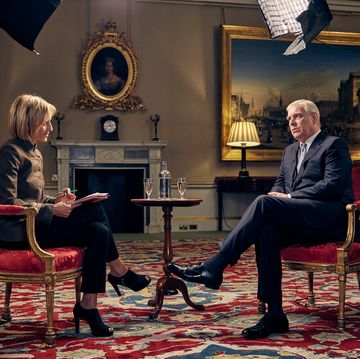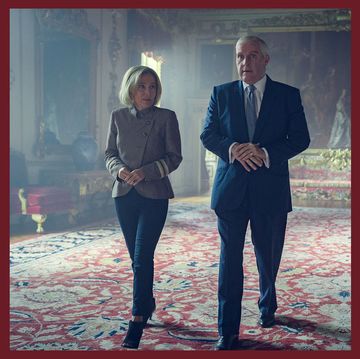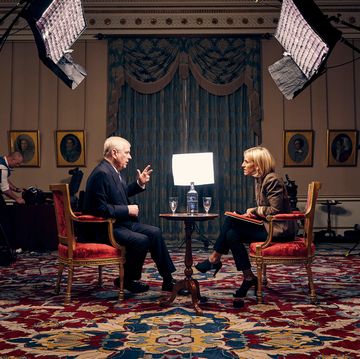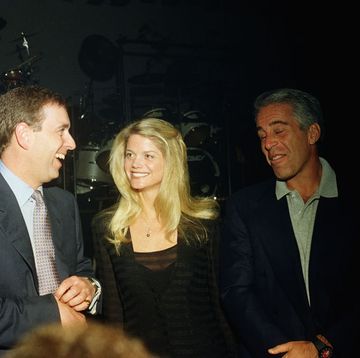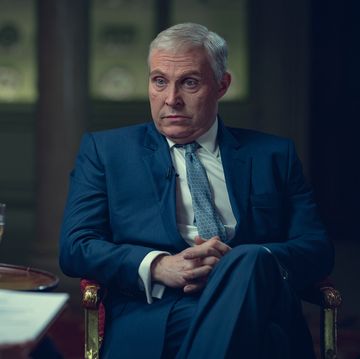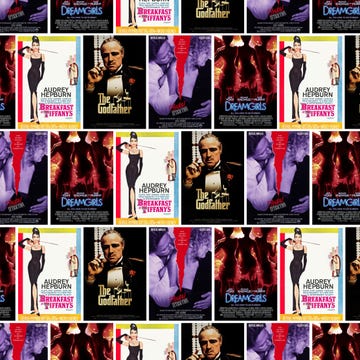The Father is currently nominated for six Academy Awards: Best Picture, Best Actor (Anthony Hopkins), Best Supporting Actress (Olivia Colman), Best Adapted Screenplay, Best Production Design, and Best Film Editing. Ahead of the ceremony on April 25, we’re republishing our February 2021 story where Olivia Colman and writer-director Florian Zeller discuss making the movie and the questions it left them with.
Until now, The Father has never been seen the same way twice. The staged performances of The Father (or Le Père, as it was known in France, where it premiered in 2012) all featured different casts and the normal changes present in live theater—and won different awards, including a Molière for best play in 2014 and nominations for both an Evening Standard Theatre Award and a Tony Award in the years following, after its respective British and American runs. (The film is currently nominated for six Academy Awards, including Best Picture, Best Actor in a Leading Role for Anthony Hopkins, and Best Actress in a Supporting Role for Olivia Colman.)
On February 26, the film—which stars Anthony Hopkins as a man grappling with memory loss and Olivia Colman (The Crown's own Queen Elizabeth) as his daughter and caretaker—will premiere in select theaters and on streaming platforms, marking the first time in its nine-year life that a production is set in stone. Well, almost.
The brilliantly constructed, poignantly dramatic movie, which has been a hit at film festivals around the world and is currently nominated for four Golden Globes—including best picture and best screenplay as well as nods for Colman and Hopkins—makes use of the condition Hopkins’s character finds himself in by giving the audience a taste of that same confusion. Over the course of the movie, sets change, lines are repeated with ever-shifting meaning, and the sense that something’s off is nearly impossible to shake. Despite the unease, it’s also a marvelous showcase for a career-best Hopkins and Colman that asks big questions about family, perception, the realities we create, and the meaning of truth. Here, Colman and writer-director Florian Zeller discuss making the movie and the questions it left them with.
The Father was first produced as a play in 2012. There have been multiple stage versions and it served as the basis for a 2015 French film. Florian, was the plan ever for it to become an English-language movie?
Florian Zeller: No, that came later. When I wrote the play, I was even not sure that it would be on stage and I was not certain that people would be open to such a journey, because it's about dementia. It's always been step-by-step, one dream after one dream, you know? I realized that something was happening after the audience in theaters in Paris, and then in other countries, were responding to the play every time, the same way. They were coming to us after every performance to share their own stories. I realized that something fantastic was at stake here, and it gave me the energy and the conviction to go on and to think about making a film.
Olivia, how did you first encounter the story? Did you see one of the stage productions?
Olivia Colman: No, I never saw it onstage. I wish I had. I don't know what differences there were between the stage show and the screenplay that I read, but what I read, I'd never seen that point of view. I'd seen programs and films made about dementia, and you were an onlooker watching. But to read it, to be as confused as the person, as Anthony Hopkins’s character, was an extraordinary point of view that I'd never considered. Suddenly it felt like like, “Oh God, of course that's how awful it feels.” I can't imagine anything that touches it in quite the same way, and quite so beautifully, as Florian's script.
Watching the movie, you’re thrown for these loops—are things repeating themselves, which point of view can I trust? It felt the same way reading the script?
OC: Exactly. Maybe one day [the script will] be published and you can read it, because it's a really good read. I had to reread it, to sort of check who was who and what was what. And even when we were filming it, I kept saying, "Do I go to Paris?"
FZ: I remember that the last day, a producer came to me, and he said, "I have a question about the story, but don't be disturbed about it. In the end, is she going to Paris or not?” I mean, even the producer was not certain that he understood the story.
OC: At least it wasn't just me.
FZ: And I was like, “I don't know, actually.” But it's true that I wanted to put the audience in a unique position, as if they were experiencing what it means to lose your bearings. I wanted the audience to be in an active position, to go through a labyrinth and to question everything they are witnessing. We played a lot with the set, in order to play with the feeling of disorientation. It was a very exciting and challenging for us to find that delicate balance, to create that feeling without being too obvious.
Were there changes that you made from the stage version to the film?
FZ: Yes, because I didn't want just to shoot a play. It's not exciting. So, I tried to find what only the cinema can do. I kept the narrative from the play, but I tried to use the sets, for example, as a way to tell that disturbing story. During the film, there are many changes or metamorphoses of the set that you are never quite sure of where you are. It was a way to be yourself in a labyrinth.
Olivia, what was that like, to have to do your work after walking onto a set that's just slightly different than it was yesterday?
OC: I had less of the repetition of lines than Anthony did, because he talked about chicken an awful lot, and I think that was really hard to learn. I don't recall that I had to repeat as much as he did. But it was because with my character, I was always aware that I was going to be standing, going to my dad's flat, or going to my flat, so it was less confusing for me. If you talk to Anthony, he goes, “Well, it was easy. I just had to be surprised at who was sitting there.” He's very sweet and modest, but he makes it look easy is really what it is.
What was the trickiest part for you to play?
OC: It’s lovely to play opposite someone like Tony, so instead of it being difficult, it was always rather a joy. The one scene I'm very pleased I wasn't present for was with Olivia Williams, when [Hopkins] says, “I want my mommy.” I'm so pleased I wasn't anywhere near that, because I think I wouldn't have stopped crying for days.
FZ: But we were all crying; it was a very emotional moment. And the paradox is that it was, at the same time, so joyful. When you have the feeling that you are achieving something truthful, sincere, and when you are going where you wanted to go, even though it's sad, there is something joyful about it.
OC: That's so nicely put. You're right. That's why it's hard to say that it was really difficult, because you think, “Oh, we're doing it right.” So, it actually feels rather positive. Does that make sense?
Florian, this is the first feature film you've made. Is it a leap to take on this different medium?
FZ: It was the beginning of something, of course. But as you said, it was also the continuation. So far, my life was to tell stories and to work with actors and, and to think about what could be shared with the audience. So, I felt as if it was the continuation, but also, everything is so much easier when you are lucky enough to work with such great actors.
OC: May I also just say about Florian—and I know Tony feels the same—that we could not believe it was his first feature film. Every day, everyone just trusted him and followed him, because he was pitch perfect every day and better in his first film than most directors are after 10 films.
Did working on this project impact the way you think about your own perception? It left me wondering about my own experiences and memories and how reliable they are.
OC: I think since making it, I do. This morning, for example, I was trying to get my daughter to school on time and going, “Where's her bag? Where's her school bag?” And I was holding it for 10 minutes. And I thought, “Is this the beginning of where I'm going to go?” I also remember my parents going upstairs and going, “Why am I up here?” And I've been doing that for years. It does make you think; it's a fragile thing, your brain.
FZ: We all have these kinds of fears. And [making this film] was not only to highlight those fears, it was also to highlight the fact that we are alive, and we have to enjoy it as much as possible. It's true also, that we did that film last year. As you know, over the last year, we all experienced this strange thing of being in lockdown, and in a way, the film is a lockdown as well. When you're started thinking about adapting a play into a film, the first ideas you have is always to write new scenes outdoors, to make it feel more cinematic. But from the very beginning, I made the decision to stay in just the apartment, like a lockdown, so that that space could become a mental space. And in the end, this is what we have all experienced during this time, to have to be lost in a mental space. This is a very challenging experience, but also something that we are all going through together. We are connected, and I think art, and especially movies, are here to make us feel part of something bigger than ourselves.
Adam Rathe is Town & Country's Deputy Features Director, covering arts and culture and a range of other subjects.
